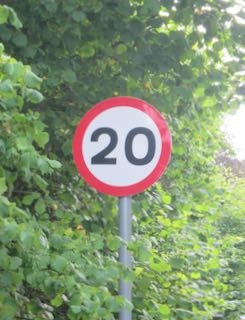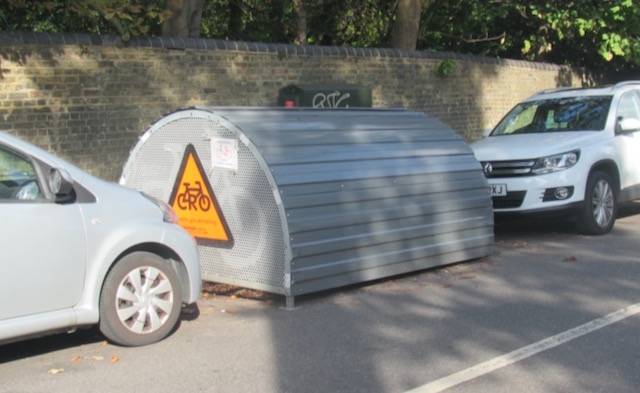The rising cost of living has eaten into everyone’s incomes over recent years, household food bills rising exponentially, heating and energy costs astronomically high and the monstrous cost of filling the family car. Household expenditure for just living a normal existence is now escalating at unprecedented rates. We can only respond by modifying our lifestyles to mitigate some of the rising costs; buying budget food brands, using cheaper stores, reducing heating and making fewer car journeys. Though such changes will make little difference in the scale of escalating costs.
Sustrans has recently published a report “Helping people through the cost of living crisis and growing our economy – the role of walking, wheeling and cycling” which looks at how active travel can improve the lives of people, especially those with lower incomes, and help to grow the economy. The premise is to make walking, wheeling and cycling the first choice for journeys, something the government has previously promoted in the gear change document. With 71% of all journeys in England under 5 miles and 25% under 1 mile, there is potential for a significant number of journeys to walked, wheeled or cycled.
The report advocates greater investment to improve walking, wheeling and cycling infrastructure and put walkable neighbourhoods at the heart of planning. These long-term investments and policy changes will build more resilience into transport. Also, that the government take steps to help people through the next few years with actions to reduce household transport costs by making walking, wheeling and cycling more desirable and accessible for everyday journeys.
The government’s own executive agency, Active Travel England, recently suggested that £18 billion investment is required to make active travel the preferred choice across England: to ensure the transport system is more sustainable and resilient for the long term, reducing the impact of climate change, the burden on the NHS, while contributing to the economy.
Sustrans recommend an implementation package of measures to support people;
- Payment scheme to help people walk, wheel and cycle, to buy, subsidise or repair equipment.
- Create a dedicated pavement fund to improve accessibility and quality, to support vegetation management, improve lighting, fix damaged pavement, manage pavement clutter, and pavements maintenance.
- Prohibit pavement parking, now being introduced in Scotland and soon Wales. Meanwhile England dithers, despite the Government’s Managing Pavement Parking consultation which ended in August 2020. Personally London’s pavement parking ban makes the experience of walking so much more pleasant than here in Derby.
- Roll out secure cycle storage for cycles and mobility aids, national cycle thefts data indicates that 54% of bicycles are stolen from domestic premises, however the vast majority of thefts are not reported as their value is not considered significant, the owner does not believe the cycle will be recovered or they are not insured so no point reporting.
- Embed walkable neighbourhoods into planning policy across the country, suggested as 20-minute neighbourhoods where everyday amenities and services are within a 20-minute return walk of your home.
- 20mph default speed in all urban areas, the Welsh government has recently decided to implement 20mph in all built up areas, yet again the English government fails to make a decision while many cities across the country are implementing 20mph maximum speeds.
- Explore other options to support people: a) Local community hubs to offer travel advice and support; b) Increase provision of cycle training; c) Support primary schools to introduce walking and cycling buses

The devolved governments are taking these issue relatively seriously with the implementation of 20mph maximum speeds and prohibition of pavement parking, though England fails to embrace the benefits that could be gained. However, some English cities are bucking the trend, intent on making active travel a serious option for those everyday journeys.
The actions proposed will assist in promoting active travel but there are limited actions here to improve the cycling environment. 20mph maximum speed limits would enhance the road environment but without enforcement, to ensure drivers comply, or other means of ensuring that vehicle speed is controlled the perception of safety on the streets will not improve. Any rule is only as good as the enforcement to ensure compliance.
Rolling out secure cycle storage will not just assist those on lower incomes but, if appropriately implemented, provide secure, convenient cycle storage for anyone living in areas of high density housing. The installation of bicycle hangars across the London boroughs has benefited all those wishing to ride a bicycle but have difficulty in securely and conveniently storing them. Similar arrangements are being rolled out in a few cities across England.

Can these proposal be applied to Derby? The issues in Derby are no different to any other city. The city has significant areas of high density housing where people struggle to park their bikes, which would benefit from the installation of cycle hangars in the streets. There are also areas of the city where 20mph restrictions have already been implemented. Such initiatives have been implemented in many cities, they are not new or even high risk. People need to have the opportunity to choose their means of transport which requires the authorities to make decisions to support such initiatives.
The improvement and provision of infrastructure together with training and friendly encouragement are not sufficient on their own to get more people riding bikes. Wherever cycling has become a meaningful mode of transport there is inevitably some control placed on the usage of vehicle. Measures such as 20mph restrictions may assist, if enforced, but alone will only offer limited benefits. Whilst vehicles have ready access to our towns and cities it is unlikely that the number of people riding bicycles will increase.
This report builds on well established practices to encourage people to walk, wheel and cycle. Giving people the choice of transport mode for those everyday journeys is an essential part of managing their personal budgets but will also assist in reducing the impact of climate change and has the potential to improve health. To embed active travel in society will require that people feel safe and comfortable using the roads.

